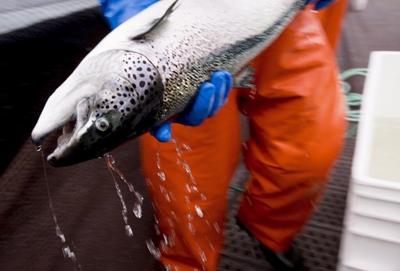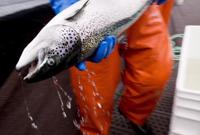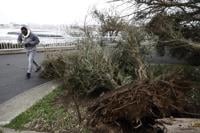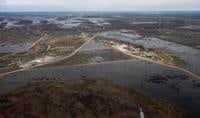A coalition of şĂÉ«tv environmental groups has lost its latest bid to prevent Alaska's salmon fishery from being labelled as sustainable by an international certification body.
The groups — including the Raincoast Conservation Foundation and Watershed Watch Salmon Society — say an adjudicator has upheld the Marine Stewardship Council's decision to certify the Alaskan fishery despite what they call "unsustainable" fishing practices that intercept British Columbia's migrating salmon.
However, Alaska's Department of Fish and Game says it is pleased that the adjudicator "affirmed the sustainability of Alaska’s fishing practices" based on "sound science," adding that the salmon fishery in question "has the most robust and comprehensive" assessment program on the Pacific seaboard.
The şĂÉ«tv groups filed a joint objection to the Marine Stewardship Council certification in April, saying the assessment "significantly underestimates" the impact of Alaskan troll fishing on salmon populations in British Columbia as well as possible effects on endangered Southern Resident killer whales that feed on the fish.
Adjudicator Melanie Carter says in her decision that certifiers at the council "double-checked" that the Alaskan fishery is managed in accordance to provisions in the Pacific Salmon Treaty between Canada and the United States.
Carter's decision says that additional analyses also determined the catch shares in Alaska "are sufficiently low as to satisfy certification requirements."
"On the evidence before me, I can see that the (certifiers) considered the best available data relative to the standard and rationally concluded that the available data were sufficient for evaluation purposes," the decision says in siding with the council's decision to certify the fishery.
Aaron Hill, executive director of Watershed Watch Salmon Society, says that while his colleagues are "disappointed" with the decision, they were also "not surprised" given what he describes as the council's procedures for dealing with objections heavily "in favour of the fishing industry."
"It's pretty hard to get a win on these kinds of things, but we had to try because we just so fundamentally disagree with the idea that the southeast Alaska salmon fishery should be given a sustainable label," Hill says.
He says many net fisheries in southeast Alaska are not reporting bycatch of non-target species — which could include chinook and steelhead from B.C. — and are not required to return the unintentionally caught fish to the sea alive.
"They're dead when they hit the water," Hill says. "It's just ridiculous that a fishery that's given this Marine Stewardship Council blue check mark is throwing 100 per cent of their bycatch back dead and not reporting the numbers."
Alaska Department of Fish and Game policy adviser Dani Evenson says in a written response that the state government "carefully monitors catches and escapements" to make sure fisheries comply with a number of policies including the Pacific Salmon Treaty and the U.S. Endangered Species Act.
Evenson says fish stocks are managed "to sustain salmon populations into the future."
"Southeast Alaska has the most robust and comprehensive stock and fishery assessment program on the Pacific seaboard," the response says. "This includes high fishery sampling rates, scientifically defensible escapement monitoring programs, and juvenile salmon wild tagging programs.
Tagging programs are rare on the Pacific coast, and the results provide valuable insights into freshwater and marine survival, as well as greater determination on where and when stocks are caught, the statement says.
When contacted for comment about the decision, the Marine Stewardship Council said it is working on a response.
Hill says the ultimate goal for his group and others making the objection is for the Pacific Salmon Treaty to be reformed in order to reduce "interception fisheries."
In the meantime, he is calling on consumers to not rely on the Marine Stewardship Council's blue check mark to determine whether the salmon they buy is sustainably produced.
"That's true that they are abiding by the treaty, but the treaty doesn't prevent them from overfishing our depleted fish stocks," Hill says.
"In order for the Alaskans to come to the table and make those changes, we need to make it worth their while. And to do that, our next step is to just increase our efforts to go directly to consumers, to let them know that they shouldn't be buying Alaskan salmon until these changes are made."
This report by şĂÉ«tvwas first published Oct. 30, 2024.








































